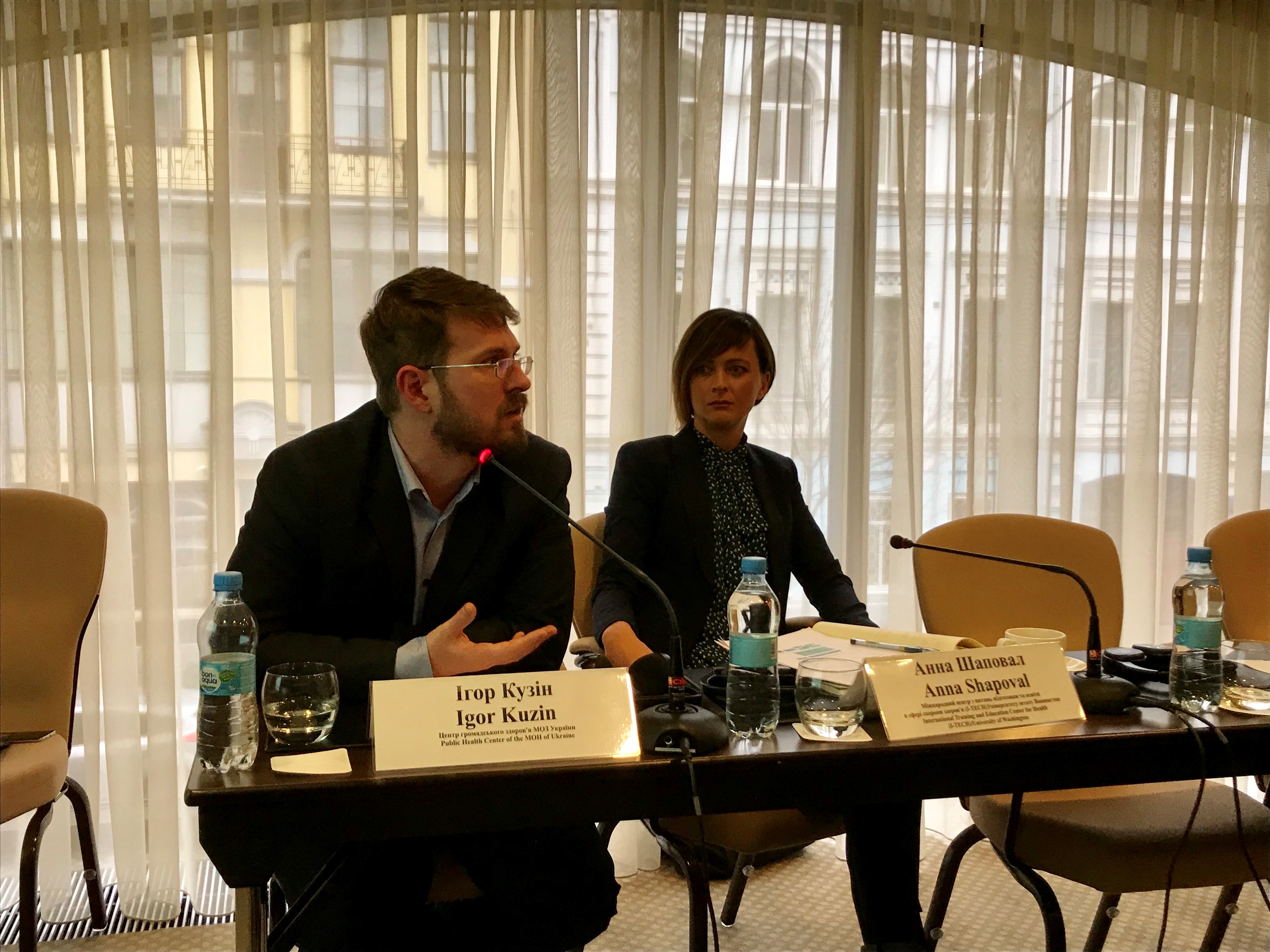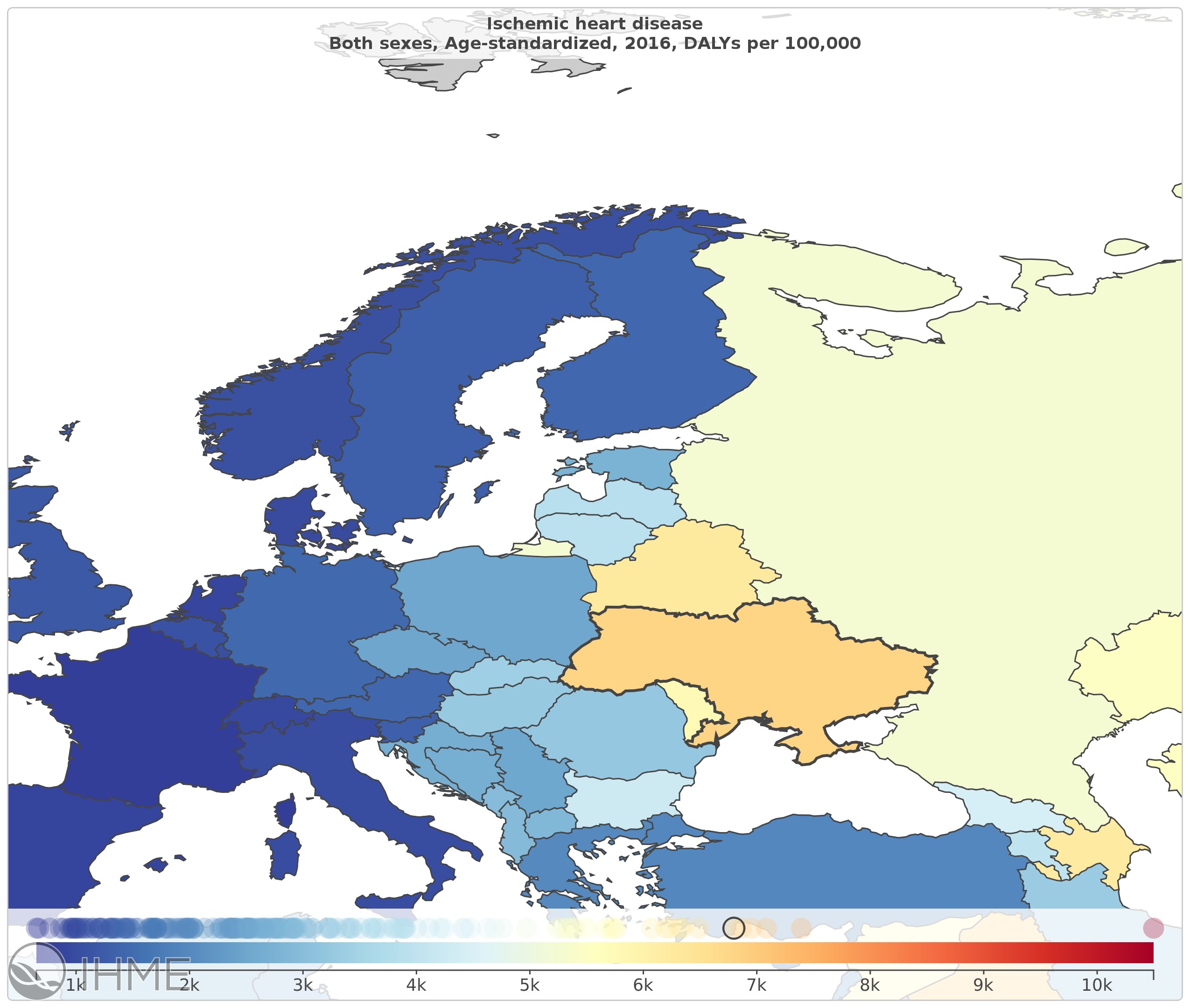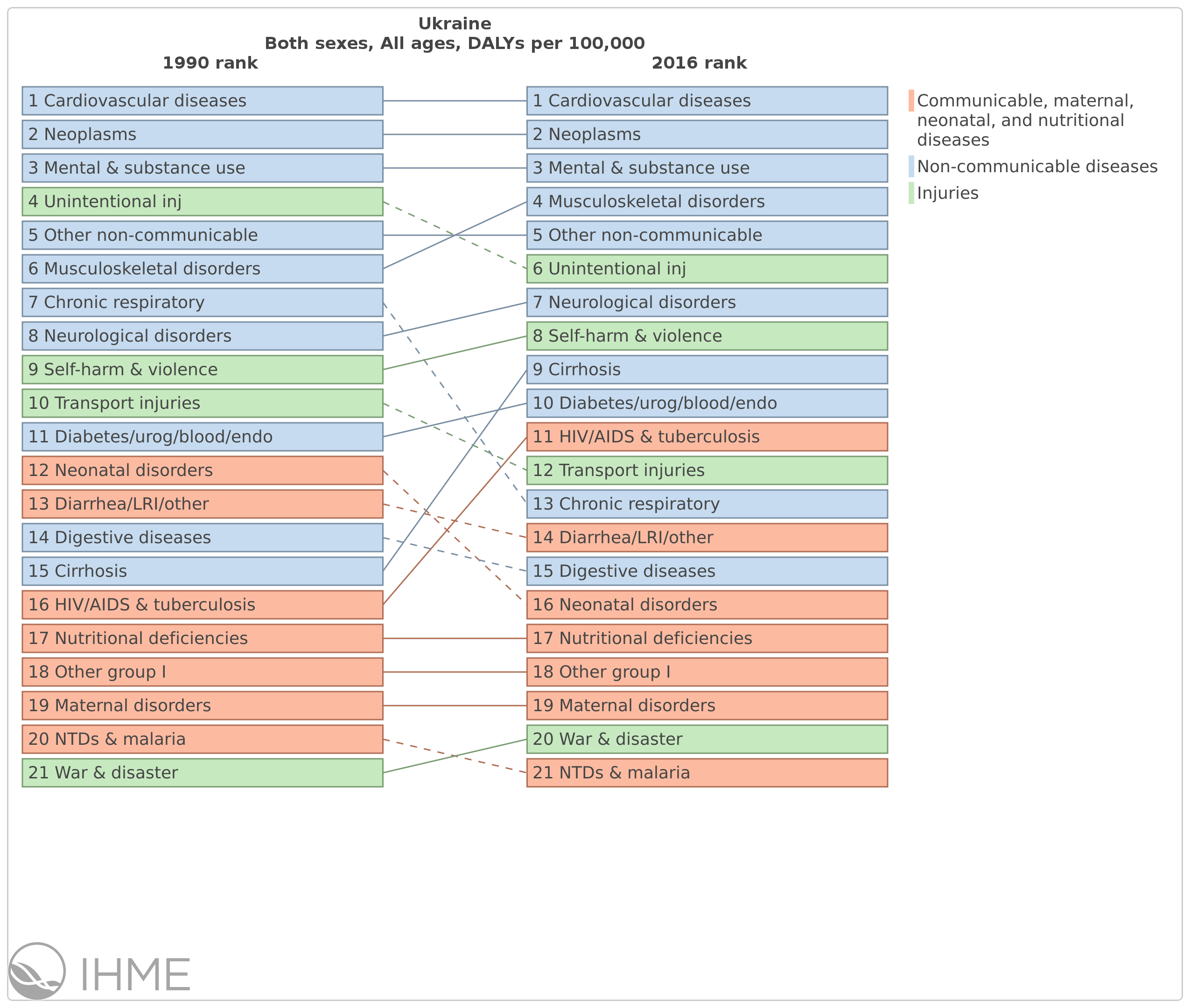Ukraine has revamped its health system using the Global Burden of Disease (GBD) study to better address the health problems of its people. The Ministry of Health of Ukraine is also working with IHME to improve the science behind the estimates.
“Ukraine was lacking a unified tool to use for prioritization of public health issues, but there is a need to make sure that interventions are tailored to vigorous research results,” explained Dr. Ihor Kuzin, Deputy Director General for Coordination of Program Activities and Strategic Development within the Public Health Center (PHC). “GBD serves as a perfect instrument to be implemented at both national and local levels.”

Dr. Ihor Kuzin, Deputy Director General for Coordination of Program Activities and Strategic Development within the Public Health Center at the Ministry of Health of Ukraine speaks at a seminar on the Global Burden of Disease, organized in partnership with IHME and the International Training and Education Center for Health (I-TECH). Seated next to him is Anna Shapoval, Representative for I-TECH in Ukraine.
Like many countries of the former Soviet Union, Ukraine’s disease burden is characterized by the dominance of non-communicable diseases (NCDs), fueled by an aging population, lower fertility rates, and risk factors such as high blood pressure and dietary risks. After adjusting for differences in ages across countries, Ukraine has one of the highest rates of health loss in the world due to ischemic heart disease. However, the country is also experiencing increasing rates of HIV/AIDS, as well as complications of HIV/tuberculosis co-infection.

Adjusting for differences in age across countries, Ukraine exhibits one of the highest rates of disease burden for ischemic heart disease in the world.

Between 1990 and 2016, the rate of early death and disability from HIV/AIDS and tuberculosis increased by 240% in Ukraine.
“On the national level, the results of the GBD study were among the many crucial factors and discussions that helped form the structure of the Public Health Center of the Ministry of Health of Ukraine,” explained Dr. Kuzin. “In other words, a special unit was formed that reflects many of the specific diseases and risk factors observed in the GBD results. The formation of this unit was approved by an order of the Ministry of Health.”
In the near future, the Ministry hopes to utilize GBD to expand the strategic focus of the Public Health Center to include non-communicable diseases instead of targeting communicable diseases exclusively.
These institutional shifts follow two years of collaboration with IHME, during which the two institutions learned more about each other’s work, mission, and vision. IHME and the Ministry jointly developed a plan of action to strengthen understanding of GBD methods and findings and improve GBD estimates for Ukraine. As part of the execution of this action plan, IHME team members traveled to Kiev to conduct a seminar with a group of health officials in partnership with PHC of the Ministry of Health of Ukraine and the International Training and Education Center for Health (I-TECH) within the Department of Global Health at the University of Washington.

Meghan Mooney, Senior Engagement Manager from IHME, speaks at the seminar on the Global Burden of Disease in Kiev on October 31, 2017.
On October 31, 2017, Engagement Officer Julia Gall and Senior Engagement Manager Meghan Mooney conducted a seminar in Kiev for 30 local, national, and international health officials. These officials included members of the Ministry of Health of Ukraine, the Public Health Center, the Centers for Disease Control[AC1] [Jg2] [AC3] , the World Health Organization, and UNAIDS.
The focus of the meetings was to introduce GBD and its methodology to the Ukrainian health expert community, present key findings and recommendations from the GBD 2016 study, and discuss potential application of GBD methodology and findings at the national and regional levels. Meeting participants gained an understanding of GBD’s emphasis on collaborating with local experts to generate estimates for their country.
Many participants at the meeting voiced interest in how GBD will be applied to local health settings, leading to suggestions for deepening collaboration through training and data sharing. Dr. Otto Stoyka, Chief Doctor of the City Health Centre of Kiev, said, “In Ukraine, we need to collect real statistical data from general practitioners and health care settings. We do not have enough data analysis skills, so we need help in improving estimates. It is important for us to organize and collect electronic data at all levels of the health system.”
Moving forward, IHME and PHC will continue working together to create a greater understanding of GBD methods, as well as to build support for the results at national and local levels. A key principle of GBD is that estimates are much stronger if countries themselves have input into and understanding of their burden of disease estimates. “GBD estimates are most useful for decision-making when they are generated in partnership with and accepted by collaborating countries,” said Ms. Mooney.
According to Dr. Kuzin, “IHME and the I-TECH Ukraine team are working together on creating a pool of national experts from relevant fields to make sure the GBD estimates are really ‘Ukrainian.’ The plan for 2018 is to work closely with the holders of data sources to ensure data quality for producing reliable estimates. We also expect to engage major stakeholders at all stages of the GBD research process.”
“Ukraine serves as an excellent model for countries experiencing a similar type of disease burden. We are working with our Ukrainian partners to understand the methods and findings of the GBD study. Our goal is to help countries such as Ukraine make their own informed decisions,” said Ms. Gall.